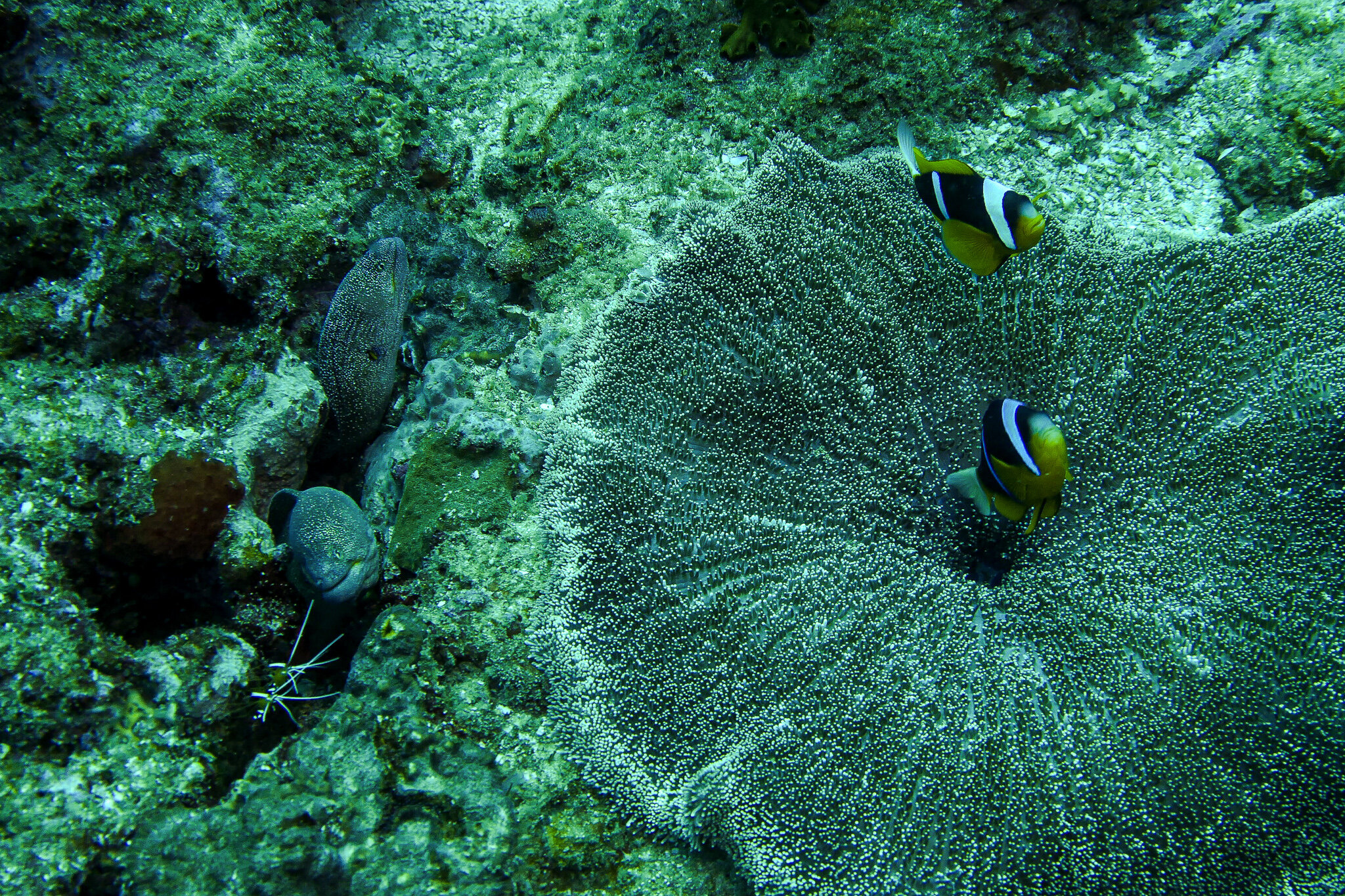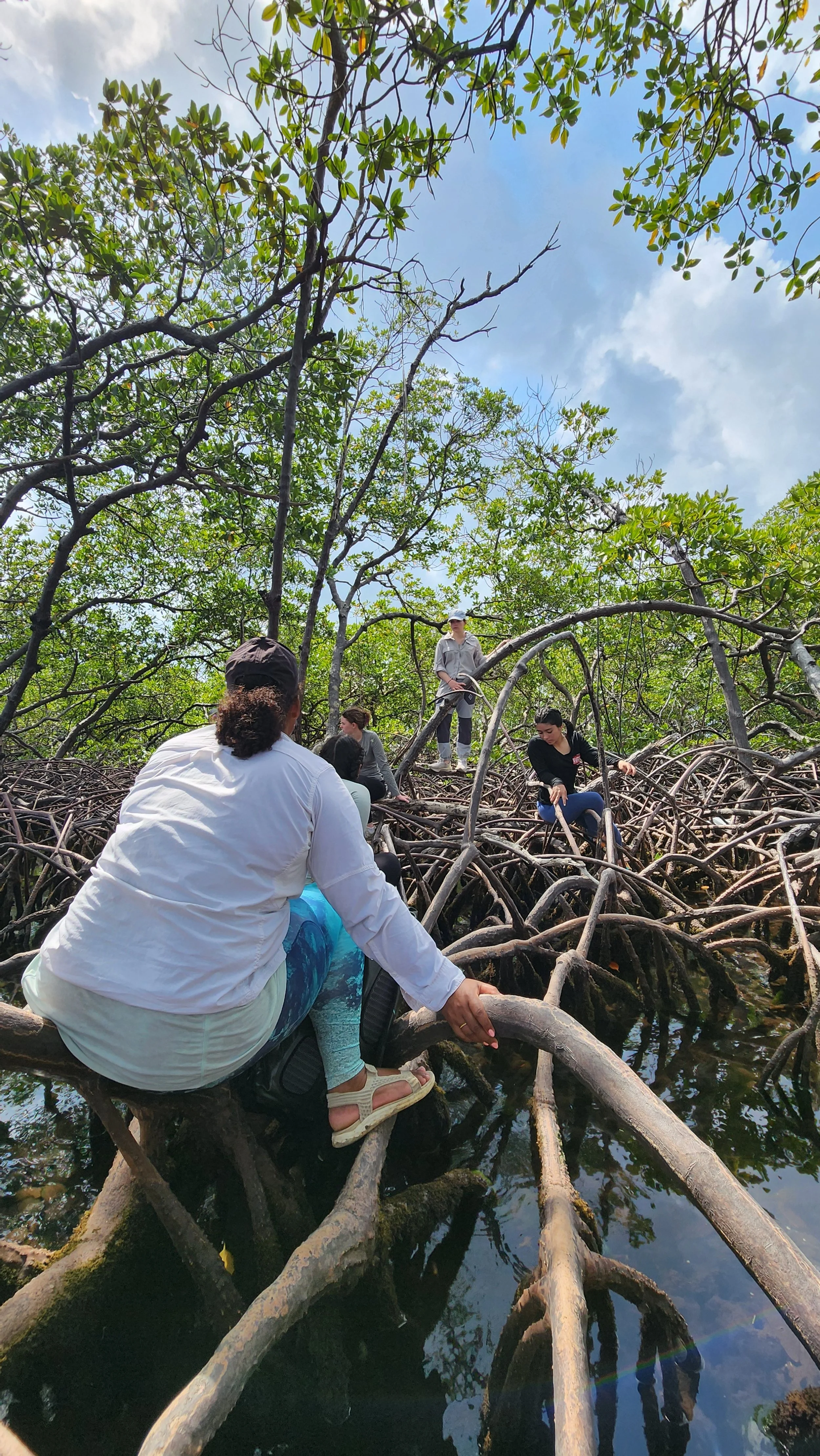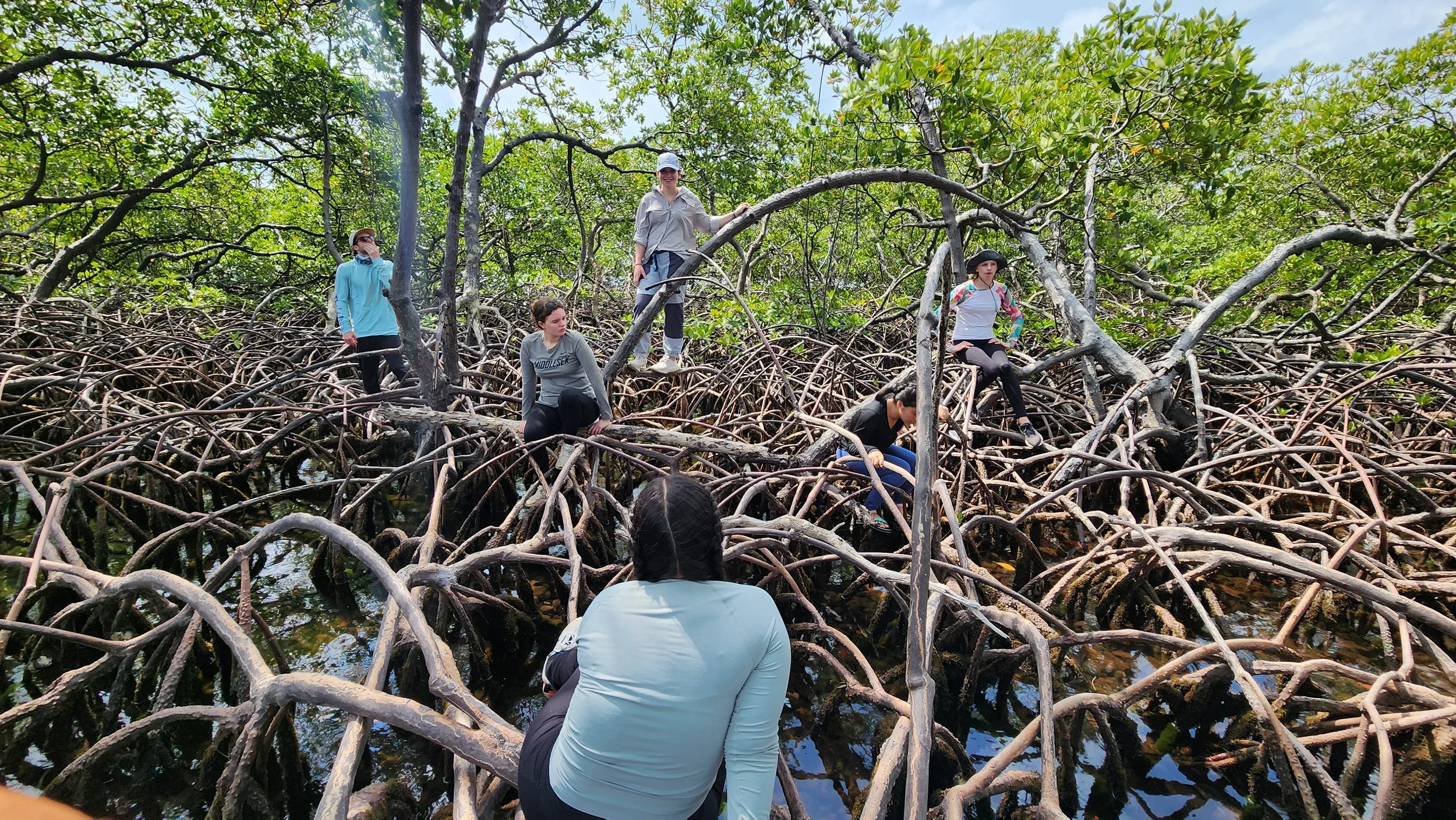Teaching Philosophy

My teaching philosophy is rooted in the belief that transformative education happens at the intersection of experience, equity, and exploration. As an educator, marine biologist, and advocate for ocean equity, I am committed to creating once-in-a-lifetime learning opportunities that inspire curiosity, critical thinking, and hands-on engagement with marine and environmental sciences.
At the TIBS Panama program, I integrate my expertise in marine biology, program management, and undergraduate education to cultivate a dynamic and inclusive learning environment. My approach emphasizes mentorship, real-world application, and broadening participation in STEM—ensuring that students from diverse backgrounds have the tools, knowledge, and confidence to thrive as future leaders in conservation and ocean science.
SFS 2070 Cultural Competence in Conservation
This course contains two distinct but integrated modules. The Spanish language module offers listening, oral, and written practice of the Spanish language at beginner, intermediate, and advanced levels of proficiency. Students engage in oral and written grammar and vocabulary exercises, and develop Spanish language skills and tools required for their research projects. The Society and Culture of Panama module helps students to develop a more refined understanding of Panamanian culture and the various communities with which we work. Students participate in lectures, field exercises, and other activities—all of which teach them strategies and skills for working with people in a community-based research context and help them to assist with community extension projects.
The School for Field Studies
SFS 4910 Directed Research
This course prepares students to distinguish hidden assumptions in scientific approaches and separate fact from interpretation, cause from correlation, and advocacy from objectivity. Students learn specific tools including: experimental design; field techniques; basic descriptive statistics; and parametric and non-parametric quantitative analysis. Emphasis is placed on succinct scientific writing, graphic and tabular presentation of results, and effective delivery of oral presentations.
The School for Field Studies
SFS 3530 Tropical Marine Ecosystems: Monitoring and Management
This course prepares students to distinguish hidden assumptions in scientific approaches and separate fact from interpretation, cause from correlation, and advocacy from objectivity. Students learn specific tools including: experimental design; field techniques; basic descriptive statistics; and parametric and non-parametric quantitative analysis. Emphasis is placed on succinct scientific writing, graphic and tabular presentation of results, and effective delivery of oral presentations.
The School for Field Studies

Past Courses
Marine Biological Laboratory Woods Hole, Massachusetts
Guest Instructor of BIOS 27726 / ENSC 24600 Marine ecosystems: from microbiomes, to conservation, climate, and beyond, 26 August – 13 September, 2024
New York City College of Technology, Department of Biology
Guest Instructor Role. Instructed introductory biology lecture and laboratory to first year level college students.





